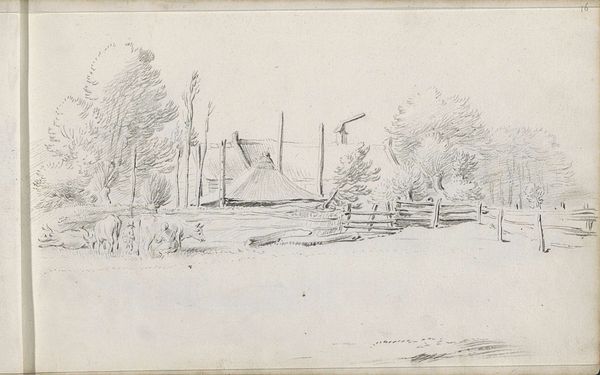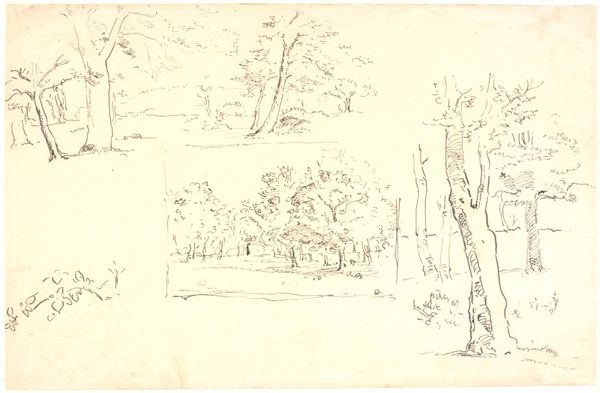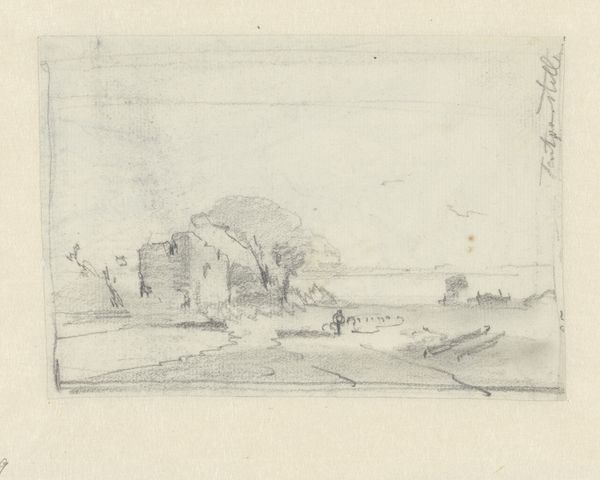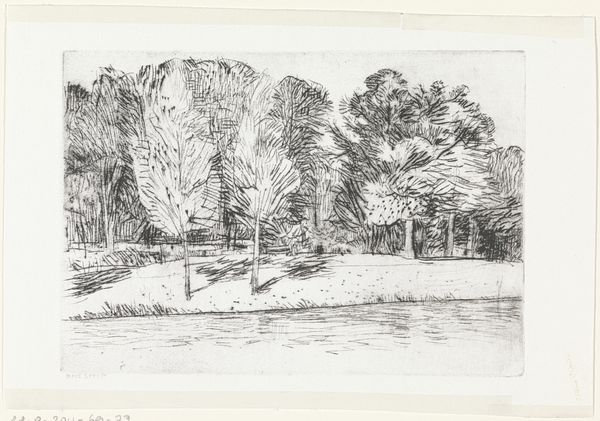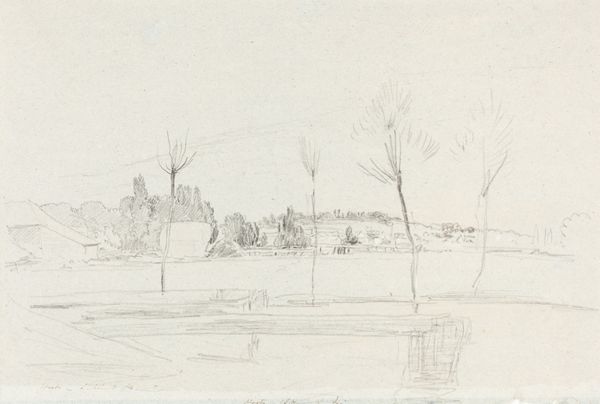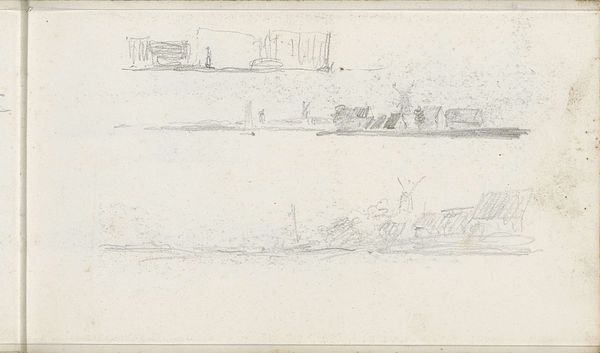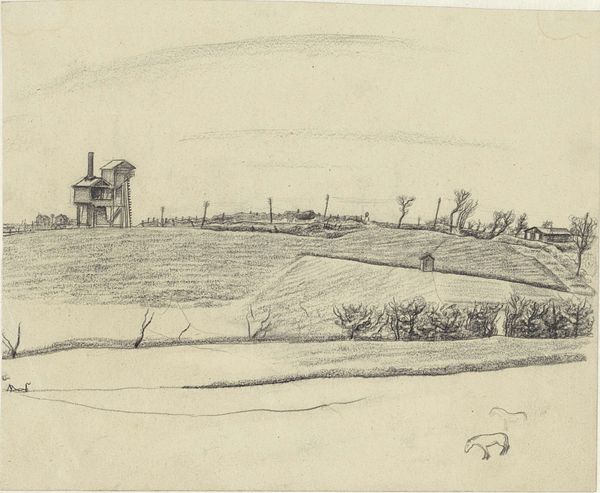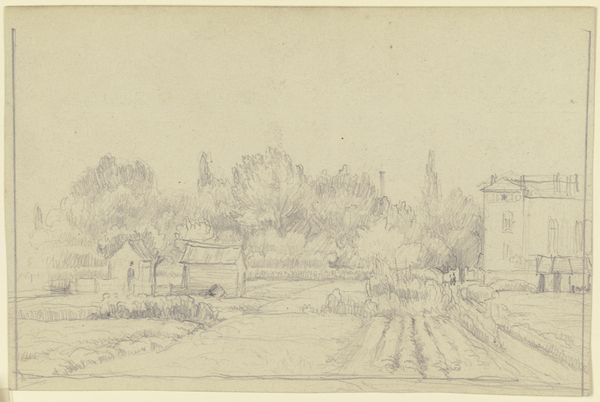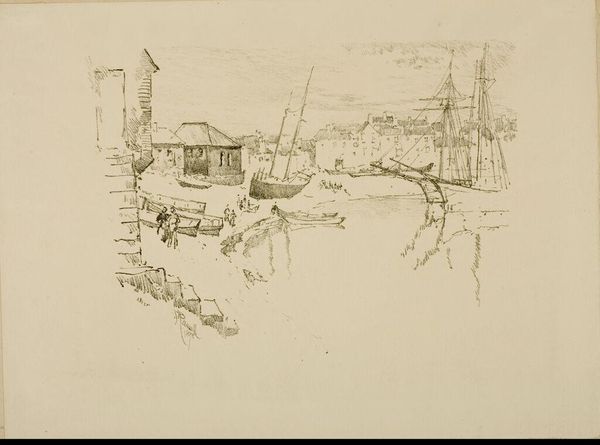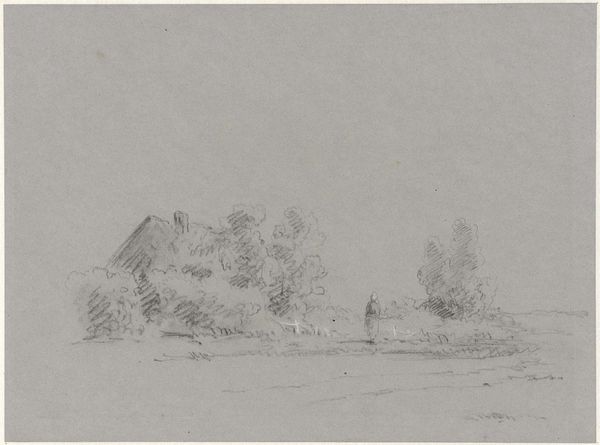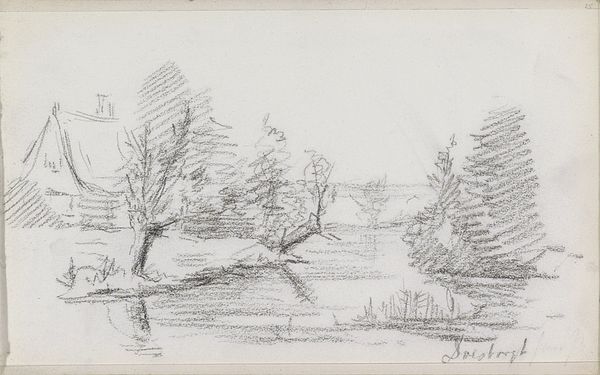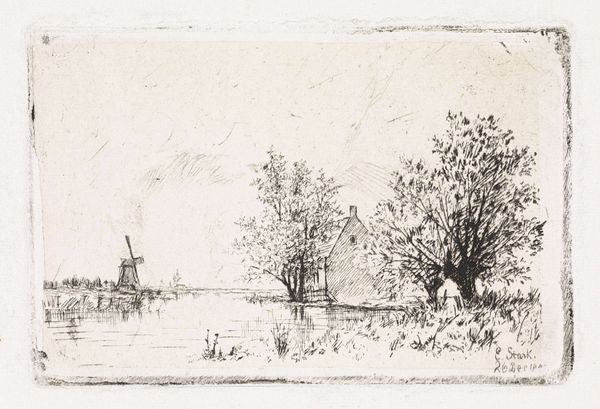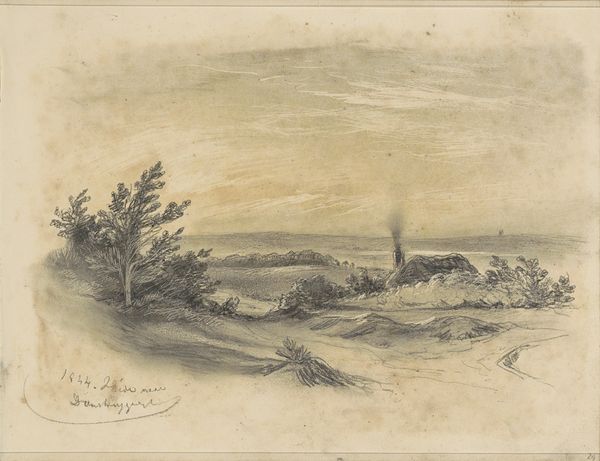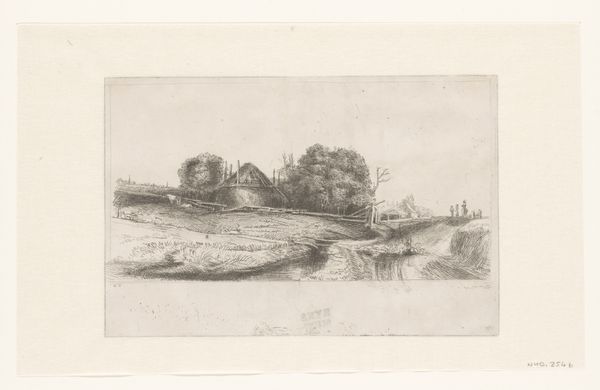
drawing, pencil
#
drawing
#
landscape
#
etching
#
romanticism
#
pencil
#
cityscape
#
realism
Dimensions: 148 mm (height) x 213 mm (width) (bladmaal)
Editor: This is "The Street with the Water Pump," a pencil drawing made in 1836 by Christen Købke. I’m immediately struck by the ordinary, everyday quality of the scene – there's a stark simplicity in the drawing. How might we interpret this seemingly simple depiction in its historical moment? Curator: It's crucial to recognize that Købke painted during a period of significant social and political change in Denmark. Absolutism was giving way to early forms of democracy, and a burgeoning middle class was beginning to shape public life and the cultural landscape. What we might interpret as an "ordinary" scene reflects this shift. Instead of glorifying royal figures, Köbke directs his artistic gaze at ordinary subjects and local settings. Editor: So the selection of such an unassuming subject becomes significant? Curator: Precisely. Prior to the mid-19th century, landscapes were often grand, allegorical, or filled with dramatic historical events. But the political change paved the way for artists like Købke to explore scenes of the here and now. "The Street with the Water Pump" is part of a visual campaign that sought to create an intimate and nationalistic image of Denmark. Editor: Interesting. It is almost as though it’s about establishing what "Danishness" means at this time. Curator: Yes, and who constitutes the public. Consider the prominent placement of the water pump. It’s a public utility, a place where different members of society interact. By highlighting this point of connection, Købke implicitly reinforces a sense of community and belonging. Editor: So the seemingly mundane scene, in fact, carries the weight of representing evolving social structures. I'll definitely look at seemingly "simple" landscapes with a renewed perspective! Curator: Absolutely. Artworks like these act as visual archives, revealing how artists actively participate in constructing, reinforcing, or even challenging socio-political ideologies of their time.
Comments
No comments
Be the first to comment and join the conversation on the ultimate creative platform.
